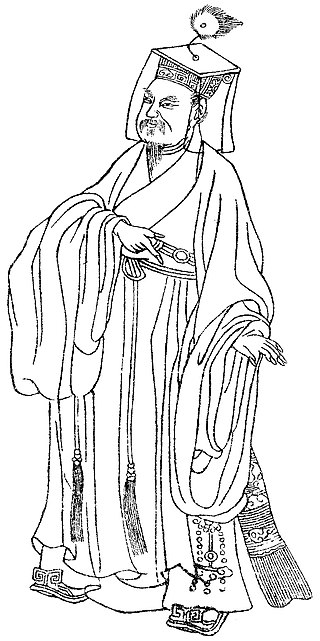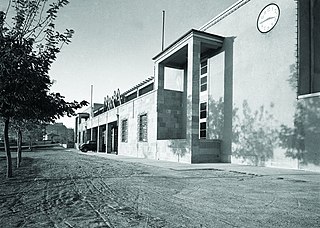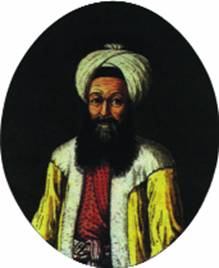In secular usage, religious education is the teaching of a particular religion and its varied aspects: its beliefs, doctrines, rituals, customs, rites, and personal roles. In Western and secular culture, religious education implies a type of education which is largely separate from academia, and which (generally) regards religious belief as a fundamental tenet and operating modality, as well as a prerequisite for attendance.

Han Yu, courtesy name Tuizhi, and commonly known by his posthumous name Han Wengong (韓文公), was an essayist, Confucian scholar, poet, and government official during the Tang dynasty who significantly influenced the development of Neo-Confucianism. Described as "comparable in stature to Dante, Shakespeare or Goethe" for his influence on the Chinese literary tradition, Han Yu stood for strong central authority in politics and orthodoxy in cultural matters.

Halide Edib Adıvar was a Turkish novelist, teacher, and a nationalist and feminist intellectual. She was best known for her novels criticizing the low social status of Turkish women and what she saw from her observation as the lack of interest of most women in changing their situation. She was a Pan-Turkist and several of her novels advocated for the Turanism movement.
Baku Slavic University (BSU) is a public university located in Baku, Azerbaijan.

Hasan Âli Yücel was a Turkish education reformer and philosophy teacher who served as minister of national education of Turkey from December 1938 to August 1946. He is remembered for the foundation of Village Institutes.

The Hacettepe University Ankara State Conservatory, the first conservatory to be founded in the Republic of Turkey, was established in 1936 by a directive of Mustafa Kemal Atatürk.

Giritli Ali Aziz Efendi was a late-18th century Ottoman ambassador and author. He is best known for his novel "Muhayyelât" (Imaginations), a unique work of fiction blending personal and fantastic themes, well in the current of the traditional Ottoman prose, but also exhibiting influences from Western literature.

Hovsep Vartanian, better known as Vartan Pasha, was an Ottoman Armenian statesman, author, and journalist of the 19th century, promoted to the rank of pasha after three decades in the service of the state. He is also notable for his novel "Akabi's Story", published in 1851 in Turkish written in the Armenian script, and for having published the bilingual magazine Mecmua-i Havadis, an important reference in the history of the Turkish written press.
Theodore Brameld was a philosopher and educator who supported the educational philosophy of social reconstructionism. His philosophy originated in 1928 when he enrolled as a doctoral student at the University of Chicago in the field of philosophy where he trained under the progressive philosopher and politician, T.V. Smith. After becoming intrigued by John Dewey’s philosophy of education, Brameld developed his own theory of schools being the ultimate source to bring about political and social change.

Cahit Külebi was a leading Turkish poet and author. He has an important place in contemporary Turkish poetry due to his attachment to folk poetry traditions. His poetry is enriched with simple yet ironic language, embellished with original descriptions.

Sufism has a history in India evolving for over 1,000 years. The presence of Sufism has been a leading entity increasing the reaches of Islam throughout South Asia. Following the entrance of Islam in the early 8th century, Sufi mystic traditions became more visible during the 10th and 11th centuries of the Delhi Sultanate and after it to the rest of India. A conglomeration of four chronologically separate dynasties, the early Delhi Sultanate consisted of rulers from Turkic and Afghan lands. This Persian influence flooded South Asia with Islam, Sufi thought, syncretic values, literature, education, and entertainment that has created an enduring impact on the presence of Islam in India today. Sufi preachers, merchants and missionaries also settled in coastal Gujarat through maritime voyages and trade.

Sarah Maxine Greene was an American educational philosopher, author, social activist, and teacher. Described upon her death as "perhaps the most iconic and influential living figure associated with Teachers College, Columbia University", she was a pioneer for women in the field of philosophy of education, often being the sole woman presenter at educational philosophy conferences as well as being the first woman president of the Philosophy of Education Society in 1967. Additionally, she was the first woman to preside over the American Educational Research Association in 1981.
Yusuf Atılgan was a Turkish novelist and dramatist, who is best known for his novels Aylak Adam and Anayurt Oteli. He is one of the pioneers of the modern Turkish novel.

Kanji Swami (1890–1980) was a teacher of Jainism. He was deeply influenced by the Samayasāra of Kundakunda in 1932. He lectured on these teachings for 45 years to comprehensively elaborate on the philosophy described by Kundakunda and others. He was given the title of "Koh-i-Noor of Kathiawar" by the people who were influenced by his religious teachings and philosophy.

Vahe-Vahian was the pen name of Sarkis Abdalian, an Armenian poet, writer, editor, pedagogue and orator.
Bülent Hass Dellal was a director and chairman of the Special Broadcasting Service (SBS) in Australia before stepping down on 2 June 2020.
Erol Güney was a Turkish-Israeli journalist, translator and author. He is known for translating Western classics into Turkish in the 1940s, including those of Fyodor Dostoyevsky, Anton Chekhov and Molière. He was deported from Turkey in the 1950s due to an article that he wrote about the Soviet Union and emigrated to Israel in 1956, where he lived until his death in 2009.

Atatürk Teacher Training Academy is a higher education institution in Nicosia, North Cyprus. The academy was founded in 1937 by the ruling British government in Cyprus as the Morphou Teacher Training College. It is accredited as a university by YÖK, the Council of Higher Education of Turkey, and YÖDAK, The Higher Education Planning, Evaluation, Accreditation and Coordination Council of Northern Cyprus. Atatürk Teacher Training Academy is the oldest active higher education institution in Cyprus.
Safiye Erol was a Turkish novelist. She is one of the writers of the Republican Era.











